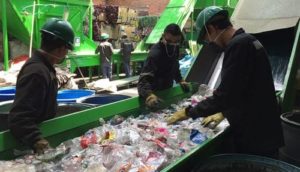Writing for GreenBiz, McKinsey.org’s Shannon Bouton and Cynthia Shih make the case that reducing price volatility for recycled plastic could lead to a big increase in recycling activity.
Amid public concern about the global plastic-pollution crisis, companies have begun stepping up their efforts to do more with recycled plastic. But plastic has proven devilishly difficult to recover and process for reuse. A big reason why: the volatility of the recycled-plastic market makes it hard for recycling companies to scale up or even to stay in business. Until that changes, companies won’t be able to source enough recycled plastic to make a dent in the world’s plastic-pollution crisis.

The first step toward unlocking investment in new recycling capacity should be to reduce the volatility of supply and demand. And the volatility-reducing mechanisms that have succeeded in other commodity markets could provide models for plastics recycling. Subsidized insurance, for example, can protect small producers from supply-side and market shocks. Cost-plus contracts between suppliers and customers can keep prices stable at a level that ensures suppliers can pay fair wages, meet high social and environmental standards, while at the same time protecting customers from price shocks. And government-imposed price floors could help limit price volatility, and thereby provide economic security for small companies.
Volatility-reducing mechanisms alone will not end plastic pollution. But they can stimulate investment in the programs and infrastructure required to recapture and recycle substantial amounts of plastic. Whatever the approach, the goal should be a stable market that fosters investment in recycling collection, sorting, and processing. Without more recycling, the world is unlikely to solve its plastic-waste problem, or indeed its waste problem as a whole.
Read the article in full at GreenBiz
